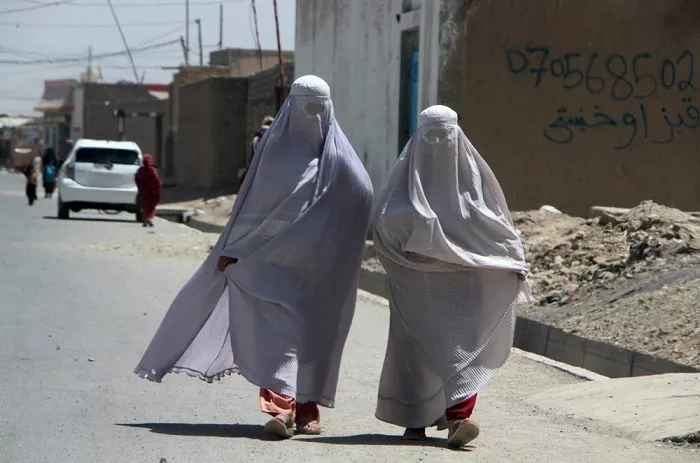A new UN report released Thursday reveals that Afghanistan’s strict morality law, introduced by the Taliban six months ago, has severely restricted civil liberties and worsened the country’s socio-economic conditions. The law, known as the Propagation of Virtue and Prevention of Vice (PVPV), was implemented in August 2024 under the orders of Taliban leader Haibatullah Akhundzada.
The law, reminiscent of the Taliban’s rule in the 1990s, enforces a strict Islamic moral and civil code. It mandates that women cover their entire bodies, including their faces, and prohibits them from traveling without a male companion. However, the law has also increasingly targeted men’s appearances, including their hairstyles and beard lengths. According to a report by the United Nations Assistance Mission in Afghanistan (UNAMA), more than half of the arrests made in the first six months of the law’s enforcement were related to men’s appearances.
The UN report states that the Taliban is using the PVPV law to enforce their vision of an Islamic state. This has led to further restrictions on women’s and girls’ access to public spaces, healthcare, and travel. The law has also obstructed the ability of UN agencies and non-governmental organizations to provide essential services to millions of people across the country.
The report reveals that approximately 3,300 male “inspectors” are now deployed across 28 of Afghanistan’s 34 provinces, with 540 in the capital, Kabul. These inspectors have broad powers, including the ability to detain individuals for up to three days and destroy property such as musical instruments. Women rarely serve as inspectors, the report notes.
Beyond the human rights concerns, the report also highlights the economic damage caused by the law. A World Bank study estimates that work and education bans on women have resulted in economic losses of approximately $1.4 billion. Both men and women reported to UNAMA that the law has deprived families of income, increased poverty, and led some to consider migrating.
The report concludes that the socio-economic consequences of the PVPV law are likely to worsen Afghanistan’s already dire economic and humanitarian crisis.


